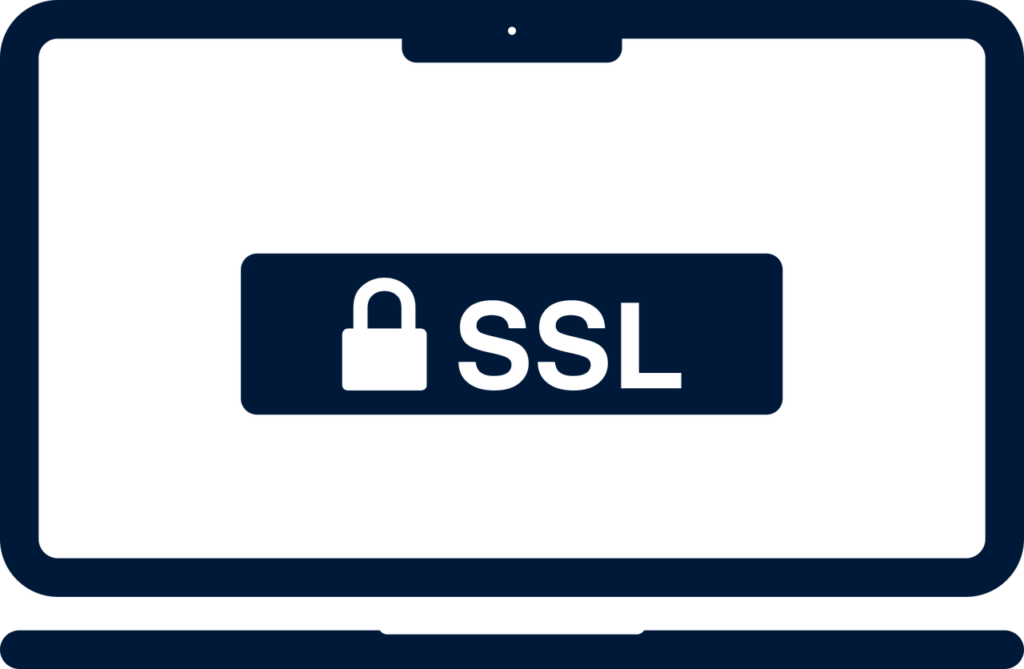What is SSL Certificate and Why it is required?
In this article we are going to understand what is SSL Certificate and why it is required ? As the internet becomes an increasingly integral part of our lives, the need for secure online transactions has become more important than ever. Online shopping, banking, and other activities require users to enter personal information such as credit card numbers and addresses, making it necessary to ensure that this information is transmitted securely. An SSL certificate plays a vital role in ensuring that sensitive information is protected from prying eyes.
An SSL certificate is a cryptographic protocol that encrypts data exchanged between a web server and a user’s browser. It creates a secure connection between the two so that any data transmitted is protected from interception or tampering. Without an SSL certificate, any data transmitted between a user and a website can be easily intercepted and read by hackers. This is especially concerning for websites that handle sensitive information such as login credentials, financial information, or medical records.

What is SSL Certificate?
SSL certificate is a digital certificate that encrypts data exchanged between a website and its visitors. It is a standard security protocol used to establish a secure connection between a web server and a browser. SSL certificates ensure that the information exchanged between a website and its visitors is private, secure, and protected from unauthorized access.
In simpler terms, an SSL certificate is a security measure that ensures that the information transferred between a website and its visitors is safe from interception by unauthorized third parties. When a website has an SSL certificate, visitors can feel confident that their personal and financial information is secure when they enter it into the website. Without an SSL certificate, sensitive information such as credit card numbers and passwords can be intercepted and stolen by hackers, leaving website owners and users vulnerable to identity theft and fraud.
Read Also: What is the difference between Website and Webpage?
What is SSL Certificate in Hindi?
To understand what is SSL Certificate in Hindi, Kindly check below video:
Why do SSL Certificate is Required?
Some of the reasons why SSL certificate is required are listed below:
1. Security
One of the primary reasons why an SSL certificate is required is security. In today’s digital landscape, cyberattacks are more common than ever before. Hackers are constantly looking for ways to intercept and steal sensitive information such as login credentials, credit card numbers, and other personal data. An SSL certificate provides an added layer of security by encrypting this information as it travels between a user’s browser and the website’s server. This means that even if a hacker manages to intercept the data, they won’t be able to read it.
Moreover, many industries have specific regulations that require websites to have an SSL certificate. For instance, if a website is collecting or transmitting personal or financial data, it is required to comply with the Payment Card Industry Data Security Standard (PCI DSS). This standard outline strict security requirements for merchants who accept credit card payments online. Without an SSL certificate, a website won’t be able to meet these requirements, which could result in legal and financial consequences.
2. Trust
Another reason why an SSL certificate is required is trust. When a user visits a website with an SSL certificate, they will see a padlock icon in the browser’s address bar, along with the “https” prefix instead of “http”. This indicates that the website has been verified as legitimate by a trusted third-party certificate authority. It also shows that any data transmitted between the user’s browser and the website’s server is encrypted and secure.
Having an SSL certificate is especially important for websites that handle sensitive information. Users are more likely to trust a website that has an SSL certificate, as they know their personal and financial information is being protected. This, in turn, can lead to increased customer loyalty and higher conversion rates. In addition, some browsers, such as Google Chrome, will display a warning message for websites that don’t have an SSL certificate, which can harm a website’s credibility and reputation.
3. SEO
Another reason why an SSL certificate is required is for search engine optimization (SEO). In 2014, Google announced that it would consider SSL encryption as a ranking factor in its search algorithm. This means that websites with SSL certificates are more likely to rank higher in search engine results pages (SERPs) than those without. This is because Google sees SSL encryption as a sign of a secure and trustworthy website. In addition, having an SSL certificate can help to increase click-through rates (CTR) on search results, as users are more likely to click on a result that displays the padlock icon.
You can also checkout this digital marketing institute to learn digital marketing course by enrolling in our course Or Contact us on +91-8949483728
4. Compatibility with newer technologies
Finally, another reason why an SSL certificate is required is compatibility with newer technologies. For example, modern web browsers such as Google Chrome, Mozilla Firefox, and Microsoft Edge have begun to phase out support for websites without SSL certificates. This means that websites without an SSL certificate may not work correctly or may display warning messages to users who try to access them. In addition, some newer web technologies such as HTTP/2, which can improve website speed and performance, require SSL encryption to work correctly. By having an SSL certificate, websites can ensure that they are compatible with these newer technologies, which can lead to a better user experience and increased engagement.
Click Here: WordPress Website Designing Course
Types of SSL Certificates
DV (Domain Validated) SSL certificates are the most basic type of SSL certificate. They are the easiest and quickest to obtain because they only require proof of domain ownership. This is done by sending an email to the domain owner or by adding a specific DNS record to the domain’s DNS configuration. Once the validation process is complete, the certificate authority (CA) will issue the SSL certificate, which can then be installed on the website’s server.
While DV SSL certificates provide encryption for website traffic, they do not provide any additional information about the website owner’s identity or legitimacy. As a result, they are generally not recommended for websites that handle sensitive or confidential information, such as e-commerce sites. However, they can be a good option for personal websites or small businesses that do not handle sensitive data.
DV SSL certificates are also typically the most affordable option, making them a popular choice for websites on a tight budget. However, it’s important to note that they may not provide the same level of trust and security as other types of SSL certificates.

Conclusion
SSL certificate is an essential tool for securing website traffic and protecting sensitive information from malicious attacks. It provides website visitors with the confidence and assurance that their data is being transmitted securely and that the website is legitimate and trustworthy. With the rise of online threats and data breaches, having an SSL certificate has become a necessity for businesses and individuals alike.
While there are different types of SSL certificates available, website owners need to choose the one that best fits their needs and budget. Ultimately, the level of security and validation required will depend on the type of website and the type of data being transmitted. Website owners need to do their research and consult with a reputable SSL provider to ensure they are getting the right level of protection for their websites. By investing in an SSL certificate, website owners can not only protect their visitors’ data but also gain a competitive edge in the digital marketplace.

